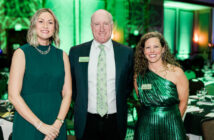With Americans holding the record for the most trash per day at nearly 5 pounds per person it is refreshing to know that there has been an approximate one hundred percent Increase in total recycling in the US in the past decade and Oregon is in the Top Ten of the most Green States.
It’s great to be an Oregonian knowing that we are one of the top ten green states in the nation and recycling efforts have made a difference locally, making for a cleaner high desert living experience.
As Oregonians in Central Oregon we can wear the clean state badge of honor but we can also be humbled by the reality that as Americans each of us produces an average of four and one half pounds of trash per day.
Does that interesting fact make you want to recycle more? It should because if we all recycled properly we can lower our personal environmental impact by nearly thirty three percent to one and half pounds per day.
Researchers have provided statistics showing why it is good to recycle properly that make sense for all Americans especially from the standpoint that as a nation we can use more materials wisely and in some cases indefinitely. For instance, ferrous metals like scrap iron and steel and non ferrous metals like aluminum, which includes foil and cans, copper, lead, zinc, nickel, titanium, cobalt, chromium and precious metals can be recycled over and over again.
With Americans using more than 80 billion aluminum soda cans every year, it is obvious what a difference recycling can make. Using those 80 billion cans over and over again with the same material creates two benefits, conservation of minerals and reducing waste.
Radford University’s Recyclemania Program publishes eye opening recycling facts stating, “A typical American family consumes 182 gallons of soda, 29 gallons of juice, 104 gallons of milk and 26 gallons of bottled water a year.” With that many containers a year we can be thankful that our region is active in its recycling efforts and is available to most homeowners and businesses.
But sometimes recycling can be a big nuisance if you have a garage or backyard with assorted items you can’t figure out how to dispose of like, tires, old appliances, batteries, paint, herbicides, spray cans, oil, vegetation, computer’s, monitors, building materials, furniture, construction debris, lumber and yard materials.
LOCAL ENVIORNMENTAL PLAYERS In Central Oregon recycling has been made easier by a trio of environmental players that have teamed up to make it simple to recycle for every person, home and business in the high desert.
Through a collaborative effort by The Department of Solid Waste Deschutes County, the Building Oregon Green Council of Central Oregon and the Central Oregon Environmental Center a resource guide titled, Central Oregon Recycle/Reuse Guide has been created.
This guide cover all aspects of every recycling challenge you may have.
In the guide it says, “It is designed to be a comprehensive tool and resource for the community and is the result of many months of gathering information, verifying with recyclers, vendors and designing this guide to be as user-friendly as possible.
There is a website with an online guide for free and it is also downloadable if you want to print it out. Published by Central Oregon Builders Association (COBA) you can easily find this online by searching Google for the Central Oregon Recycle/Reuse Guide that takes you to a printable online pdf file.
Also included in the guide are lists of all County landfills, transfer stations and private recyclers that you may need with your challenging disposal projects. The guide encourages everyone to call prior to delivery to make sure of hours and acceptance of your recycling items. In the guide you will also find a complete list of all materials that are accepted at the various recycling centers. In keeping with current recycling ideas COBA has printing only a limited amount of printed copies by making the guide available online and easily accessible.
The Central Oregon Recycle/Refuse Guide was developed through a grant from The Department of Solid Waste Deschutes County and utilized the collaborative efforts of the three aforementioned progressive green thinking organizations.
The Department of Solid Waste Deschutes County
Bend, 541-388-6570 www.deschutes.org/Solid-Waste.aspx
Building Oregon Green Council of Central Oregon
Bend, 541-389-1058 www.coba.org/committeescouncils/building-green-council.html
Central Oregon Environmental Center
Bend, 541-385-6908 www.coba.org/committeescouncils/building-green-council.html
Side Bar:
Radford University • Sustainability • Sponsoring Recyclemania
“Radford University is committed to being a model for sustainable campus practices and policies and recognized for our stewardship of economic, social, and environmental resources and for our academic commitment to sustainability.”
Eye-Opening Recycling Statistics to Inspire Recyclemania
- About 1 billion trees worth of paper is thrown away, not recycled, every year in the United States.
- Americans use almost 3 million plastic bottles every hour, most of which are thrown away.
- Each year, the U.S. population discards about 16 billion diapers, nearly 2 billion pens, more than 200 million vehicle tires and enough aluminum to rebuild the entire U.S. commercial air fleet four times over.
- Americans use 2,500,000 plastic bottles most of which are thrown away. In landfills, where plastic bottles are shielded from sunlight, they will not decompose for thousands of years.
- The energy saved by recycling one glass bottle would run a computer for 30 minutes.
- Recycling 1 ton of mixed paper saves the energy equivalent of 185 gallons on gasoline.
- Every year, Americans use 1 billion shopping bags creating 300,000 tons of landfill waste.
- The greenest states are Vermont, Maine, New Hampshire, Nevada, Hawaii, South Dakota, Montana, Idaho, Oregon, and Colorado
From Radford University, Eco Facts.
Radford University http://www.radford.edu/content/radfordcore/home/contact.html
Founded in 1910 by the Virginia State Assembly




